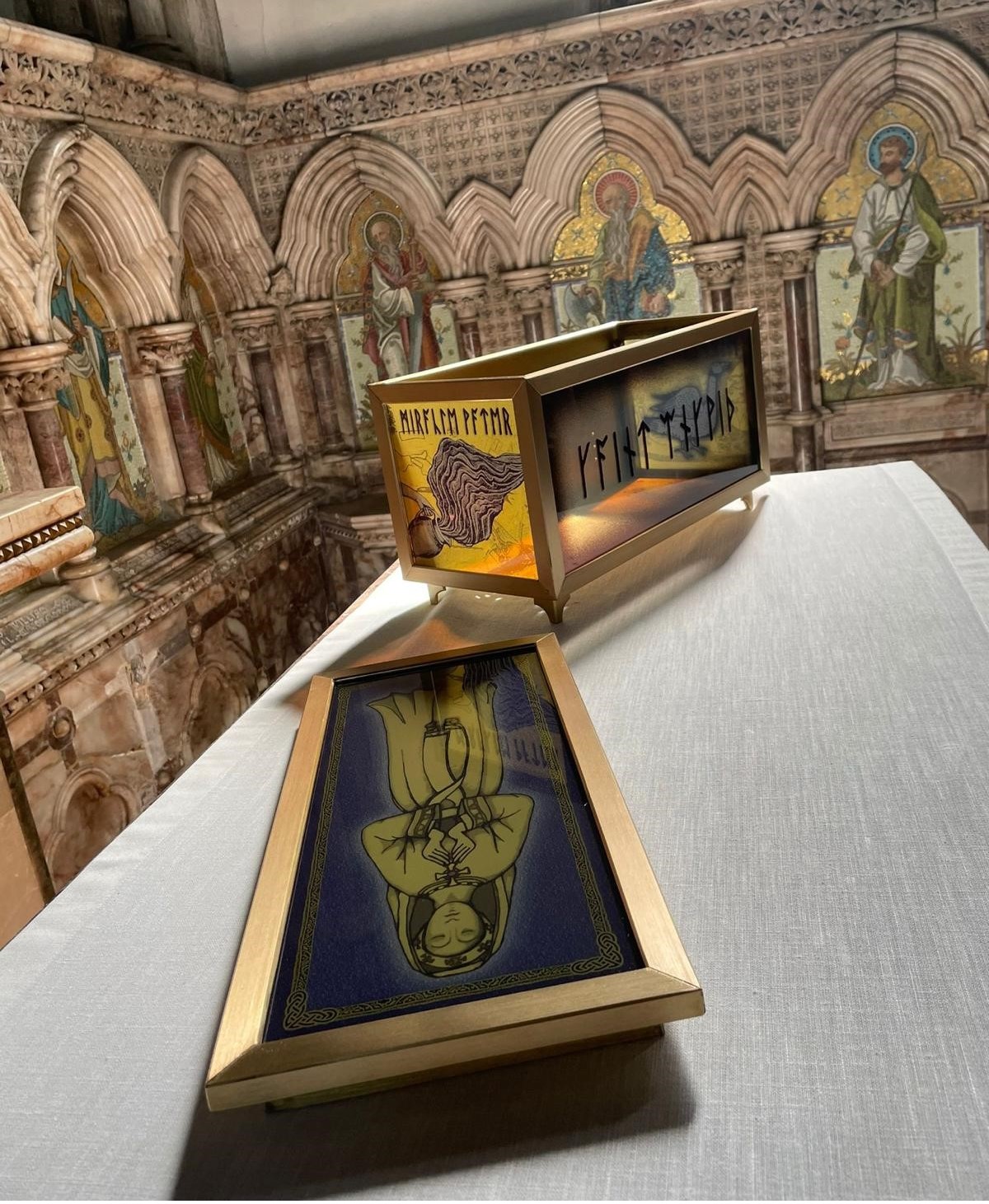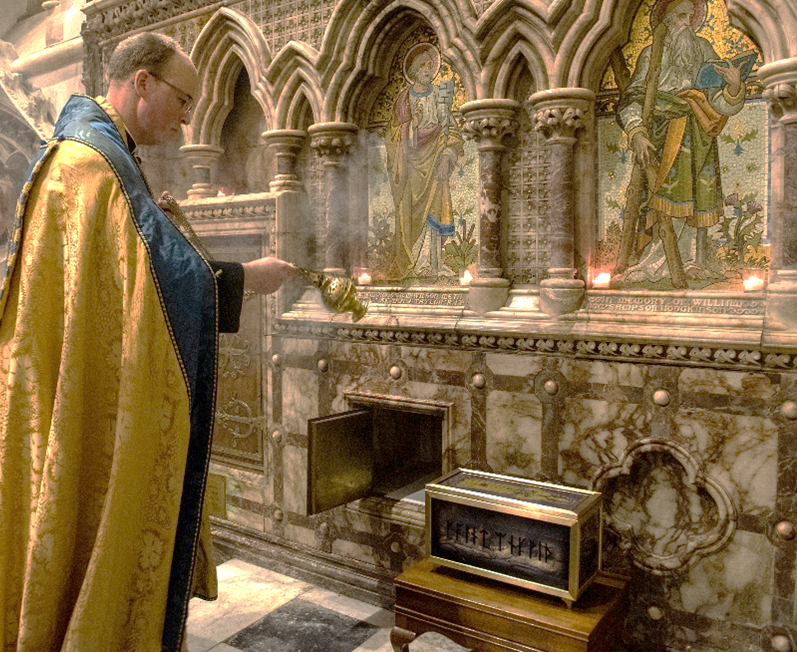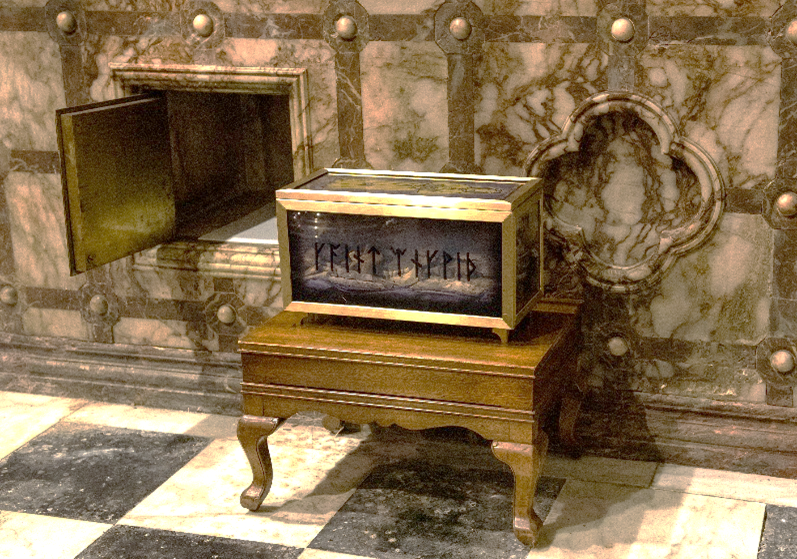
Reliquary designed by Sophie Hacker
St Mary and St Eanswythe’s Church in Folkestone hosted a special service on Sunday 17 November as the remains of its patron Saint Eanswythe were laid in their final resting place.
The relics (bones) of Saint Eanswythe were ‘translated’ to their place of honour in the church, contained within a specially designed reliquary box. It is one of the few churches in England to hold the remains of its patron saint, a member of the Kentish royal family from the 7th century.

Revd Christopher Johnson censes the relics of St Eanswythe, prior to them being placed in the shrine.
St Eanswythe is believed to have founded one of the earliest monastic communities in England, most likely around AD 660 on the Bayle - the historic centre of Folkestone.
The service brought to a close a chapter of a much wider ‘Finding Eanswythe’ project, initiated by Dr Lesley Hardy and Dr Andrew Richardson through Canterbury Christ Church University. The research and analysis has drawn in academics, archaeologists, historians and many others in the quest to find Eanswythe and celebrate her significance both to the Christian faith and the history of Folkestone.
Presided over by the Reverend Christopher Johnson, the newly installed Priest-in-Charge of the parish, the service was open to everyone, with church and civic guests along with parishioners and members of the local community in attendance.
Local school children told the story of St Eanswythe prior to the reliquary designed by Sophie Hacker being carried in procession through a packed congregation at the Parish Church of St Mary & St Eanswythe, Folkestone.

St Eanswythe's reliquary next to the shrine
Speaking of the service, the Revd Christopher Johnson said: “After many years of hard work, dedication and devotion, it was a tremendous privilege to be able to gather people not just from across the parish but the country and the world, to celebrate our patron saint and to translate her relics to their place of honour.
"We look forward to celebrating her example and her faith in the years ahead.”
Alongside the church, the Diocese of Canterbury held a competition to design the reliquary, with her remains previously being kept in a lead casket which had fallen into disrepair.
Artist Sophie Hacker was the winning designer, with her work drawing inspiration from ancient runes and the miracles associated with Eanswythe.